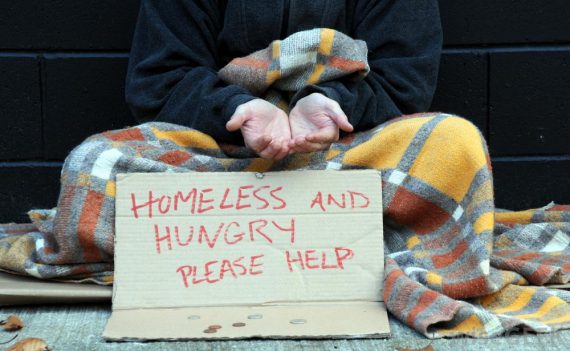
(8-29-17) Elyn Saks’ thought provoking article in Politico about forced treatment (that I posted yesterday) sparked a lively discussion on my Facebook page. This never ending debate about civil rights comes before the first meeting this Thursday of a federal mental health advisory committee. One of the quickest to argue with Dr. Saks was D. J. Jaffe, who wasn’t appointed to the Interdepartmental Serious Mental Illness Coordinating Committee, but was a key proponent in helping Rep. Tim Murphy (R. Pa.) get his Helping Families in Mental Health Crisis Act, signed into law. It was that act which created the new advisory committee. Feel free to join the discussion on my facebook page.
Heal Thyself?
A federal panel on serious mental illness gets bad advice.
By D. J. Jaffe, first posted in City Journal.
In a recent op-ed in Politico, law professor Elyn Saks argued for “expand[ing] the definition of competence” of seriously mentally ill people so more can refuse to consent to treatment. “Instead of designing new ways to force medication on patients,” she writes, “we need to put our efforts into finding new ways to help people want treatment so we don’t have to use force.” Those are not mutually exclusive choices. Both are needed. This proposal—to make it harder to designate incompetence—is dangerous both to society and to the mentally ill themselves.
Our laws to treat the seriously mentally ill have life-or-death consequences. Persons with untreated serious mental illness sometimes attack police, who often must use force to subdue them. The public has grown inured to headlines about such rampages. One problem is that individuals with serious mental illness usually cannot be committed against their will until after they become a “danger to self or others.” Laws should prevent dangerous behavior, not require it: think of seatbelts, or ignition-lock systems for habitual drunk drivers. Under our current system, even after the seriously ill have been deemed dangerous to themselves or others, they still cannot be medicated over their objections. Doctors have to make a second determination, often including a return to court, to determine if the patient has the competency to make his or her own decisions.
Saks wants to toughen the standard for making this second determination, thereby ensuring that a larger number of dangerous patients won’t be treated. According to the American Psychiatric Nurses Association, virtually all nurses working in acute psychiatric units have been assaulted during their careers. Faced with dangerous mentally ill patients whom they cannot treat, nurses arrange to discharge these patients, or call the police to take them away; either way, patients will usually wind up as prisoners. Saks’s proposal would turbocharge this hospital-to-jail pipeline.
Saks points to her own ten-year refusal to stay on medications, which only came to an end when her therapist threatened to stop treating her. But Saks is fortunate that she didn’t wind up in jail; 400,000 seriously mentally ill individuals who decided not to take their medications did find themselves incarcerated, often as a result of their untreated illness.
Assisted Outpatient Treatment (AOT) is one solution. It allows judges to require treatment-refusers who have already accumulated multiple incarcerations or hospitalizations to stay in treatment for six months as a condition of living in the community. AOT lowers the odds of arrest by nearly two-thirds. And while the threat of being forced into treatment may have inhibited Saks’s recovery, research shows that it helps most others. At least 75 percent of those in AOT reported that it helped them gain control over their lives; 81 percent said that it helped them get and stay well, and 90 percent said that it made them more likely to keep appointments and take medications.
Elyn Saks’s opinion carries great weight. HHS secretary Tom Price appointed her a public member of the Interagency Serious Mental Illness Coordinating Committee (ISMICC), which is charged with advising government on how to improve services for the seriously ill. It meets for the first time on August 31 but is already off to a bad start. Not only are committee members reading her op-ed, they are also studying briefing materials prepared by Paolo del Vecchio, director of the Substance Abuse and Mental Health Services Administration (SAMHSA)’s Center for Mental Health Services (CMHS). As I documented in Insane Consequences: How the Mental Health Industry Fails the Mentally Ill, CMHS has no medical doctors on board and is so engulfed in political correctness that it refuses to focus on the seriously mentally ill. The organization’s briefing materials start off with a discussion of mental “health”—not mental “illness”—and note that the most important metrics for assessing mental health are “successful performance of mental functions, resulting in productive activities, fulfilling relationships with other people, and the ability to adapt to change and to cope with adversity.” Those are reasonable goals for most of the population, but for the seriously mentally ill, the indicators that matter are rates of homelessness, arrest, incarceration, hospitalization, victimization, and suicide. That means focusing on the lack of hospital beds, increased rates of violence, problems with civil-commitment laws, the refusal of many mental health programs to treat the most seriously ill—and the lack of focus on all this at CMHS.
As a result of legislation originally proposed by Representative Tim Murphy (R.-PA), Congress created an Assistant Secretary of Mental Health and Substance Use Disorders and confirmed President Trump’s nominee, Elinore McCance-Katz, MD. She is a brilliant choice and began work last week. McCance-Katz is committed to focusing the nation’s mental health efforts on the seriously ill. Fixing CMHS and keeping the ISMICC on track should be the first order of business.



